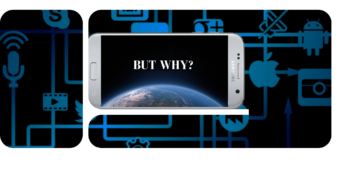Industry Groove – Week 23

The two dominant topics this year – the development of a new streaming model and the influence of AI on the music industry – may seem like completely different areas of focus at first glance. However, upon closer examination, one quickly realizes that there are many more connections between these two topics than one would assume. The search for a new streaming model has been triggered by the incredible number of releases flooding the DSPs (and the associated declining market share of the majors). Since the production of new music has become even easier with AI tools, it is not a prophecy to predict that the number of new songs will only increase even more drastically. That’s why Universal CEO Lucian Grainge also demands an artist-centric model, where “artist” naturally refers to human creatives, explicitly excluding machines.
The latest announcements from Deezer demonstrate how closely the two topics are related. However, they also reveal various issues and make it clear that there are no simple solutions for now, even if some may proclaim otherwise.
Deezer to identify and tag AI-generated music on its service
- This week, French streaming service Deezer announced that it is working on tools to detect AI-generated content and is also developing a system to label these songs. Users should know from the start what is “real” music and what is AI-generated.
- Initially, the focus will be primarily on identifying songs that use the voices of well-known acts, such as the recent track “heart on my sleeve.”
- It certainly makes sense to recognize and label (or potentially block, depending on legal considerations) such songs. However, it can certainly be debated whether such labeling is really necessary for other tracks that are entirely or partially created with the help of AI tools. For some, it may be interesting to find out whether the house track or the lo-fi tune was created with or without AI assistance. But do consumers really care?
- Deezer is certainly trying to please the majors with this move. The company is already working closely with Universal Music, just like Tidal, in the search for a new streaming model.
- Deezer’s long-term goal is to create a compensation model that distinguishes between different types of music creation.
- This raises many questions as well. Does it only apply to songs that are entirely created with AI? And if so, can the system recognize this? How much human involvement will be necessary to receive the highest possible payout, and how will this be accurately measured? Should an artist really be paid less just because they used AI to program the drums, for example? Undoubtedly, there are many discussions ahead!
TIDAL launches Artist Home
- Having a dashboard for musicians where they can learn more about the performance of their releases, understand their audience, and manage their profile has become a standard feature offered by platforms like Spotify, Apple Music, Amazon Music, Deezer, and SoundCloud. Now, TIDAL has followed suit with Artist Home.
- Artist Home provides artists with the usual functions: they can customize their profile picture, add a biography and social media links, invite other team members, or report incorrect releases on their profile. Additional features such as fan insights are set to follow.
- In an interview with MBW, Jesse Dorogusker, the CEO of TIDAL, explains that his company aims to position itself within the artist ecosystem, with streaming being just one part of it: “We will be an artist platform with music streaming assets.”
- He describes music as undervalued and underpriced, which may come as a surprise coming from the CEO of a streaming service. However, it is a logical move, considering that TIDAL is actively searching for a new streaming model in collaboration with Universal Music.
Bonus Reads
- An article that makes you think: Will AI erase human creativity? The current presence of deepfakes already demonstrates that AI threatens not only “bullshit jobs.” The author raises the question of what happens if the audience suddenly likes Fake Drake over the real one. Would the label even need the Real Drake anymore? The article argues that the prospect of being replaced by machines could impact motivation and, consequently, creative output.
- This article argues in a completely different direction. Firstly, it reminds artists that they should have more confidence in their abilities, which sets them apart from AI-generated music. In addition, it warns us not to underestimate consumers (something the music industry is often guilty of). Consumers can indeed differentiate between a human-made song full of emotions and soulless AI-generated music; they don’t simply consume whatever is presented to them. However, the author also points out two false assumptions. First, that all AI-generated music is inherently bad and wrong, and second, that all human-made music is good and valuable. Let’s be honest, the majority of music created by humans is, at best, mediocre and serves only to make the truly exceptional songs sound even better.
- Spotify is cutting 200 more positions in the department that has grown the most recently: podcasts. The podcast department is being restructured, including the consolidation of two podcast studios. Earlier this year, Spotify had already laid off around 500 employees. At the same time, Spotify announced that they now have over 100 million podcast listeners.
- MBW had the opportunity to ask some critical questions to Ole Obermann, the Global Head of Music Business Development at TikTok. Among other things, the discussion revolved around how TikTok plans to generate a significant amount of money for the music industry through sync fees, Obermann’s stance on payments to labels, and his perspective on transitioning from fixed amounts to revenue-sharing. The interview also covers the plans for Resso (or TikTok Music) and SoundOn. For the labels that TikTok is negotiating with, there was also a very clear message: “If we were forced to take down a catalog or part of a catalog, we are pretty confident that we could still remain a compelling service for our users.”











